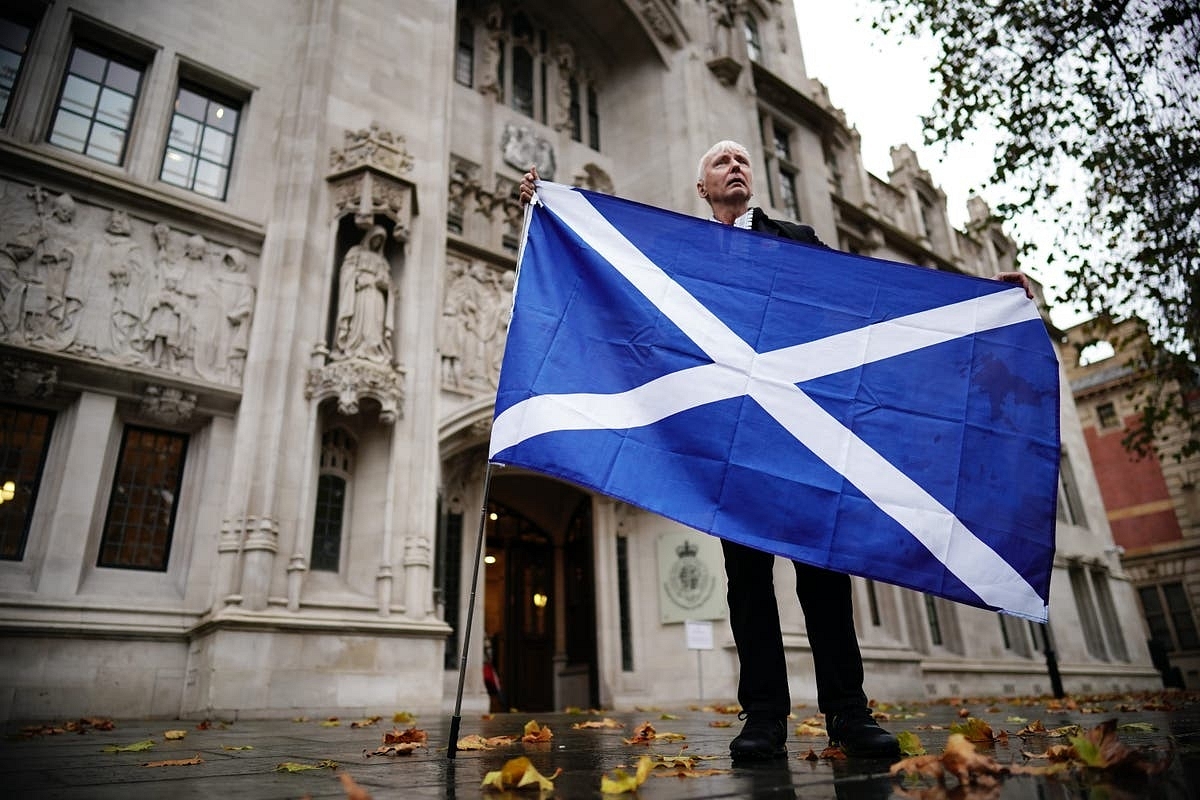World
Explained: UK Supreme Court's Decision A Blow To Scottish Independence Movement?

IndyRef2
Scottish National Party's (SNP) Nicola Sturgeon wants a second Scottish Independence referendum. The UK government does not and as a result, the Scottish government approached the UK Supreme Court to seek permission for conducting the referendum without the UK government's permission. The UK Supreme Court has ruled that Scotland does not have the power to hold a new referendum on independence without the consent of the UK Government. The judgment is a setback for the Scottish Government’s campaign to break away from the United Kingdom.
The top court ruled that the Scottish Parliament "does not have the power to legislate for a referendum on Scottish independence." According to Supreme Court President's Robert Reed, the five justices were unanimous in their verdict. The judgement was delivered six weeks after lawyers for the pro-independence Scottish administration and the Conservative UK Government argued their cases at hearings in London.
Scottish First Minister Nicola Sturgeon said that she would respect the Supreme Court's decision but she added that she will continue to fight for Scotland's independence. "Democratic right to choose our own future" is at stake, she said.
The semi-autonomous Scottish Government wants to hold a referendum next October with the question: "Should Scotland be an independent country?" The UK-wide Conservative government in London refuses to approve a vote, saying the question was settled in a 2014 referendum was a once in a lifetime vote and in that referendum voters reject independence by a margin of 55 per cent to 45 per cent.
SNP claims that the 2014 should not be considered the final word as Brexit has not happened at that time, if the vote were to take place after Brexit then the result would be different because a majority of people in Scotland do not want to leave the European Union.
She added that Scotland's government will treat the next UK General elections as the "de facto referendum" on Scottish Independence.
"We must and we will find another democratic, lawful and constitutional means by which the Scottish people can express their will. In my view, that can only be an election," she said at a press conference.
Scotland's last parliamentary election returned a majority of pro-independence lawmakers for the first time, and Nicola Sturgeon argues that she has a democratic mandate from the Scottish people to hold a new secession vote because there is an independence-supporting majority in the Scottish Parliament.
During the Supreme Court Hearings, the Scottish government's top law officer, Dorothy Bain reasoned that a majority of lawmakers in Scotland have been elected as a result of commitment to hold a 2nd Scottish Independence referendum. She attempted to make the Supreme Court rule in SNP's favour by saying that the referendum will be advisory and not legally binding. Most polls indicate a neck to neck competition between pro-independence and pro-union. The polls also indicate that most people do not want a new referendum although the SNP's political trajectory is tied with the referendum. Demand for independence is what makes SNP different from other parties.
Scotland and England have been politically united since 1707. Scotland has had its own parliament and government since 1999 and makes its own policies on public health, education and other matters. The UK government in London controls matters such as defense and fiscal policy. With the next UK general election due to be held by January 2025 at the latest, it is clear that Wednesday’s ruling is not an end to the questioning of how long this will continue.
Introducing ElectionsHQ + 50 Ground Reports Project
The 2024 elections might seem easy to guess, but there are some important questions that shouldn't be missed.
Do freebies still sway voters? Do people prioritise infrastructure when voting? How will Punjab vote?
The answers to these questions provide great insights into where we, as a country, are headed in the years to come.
Swarajya is starting a project with an aim to do 50 solid ground stories and a smart commentary service on WhatsApp, a one-of-a-kind. We'd love your support during this election season.
Click below to contribute.
Latest